Member News: Kyrgyzstan Chapter Focuses on Online Resources for Schools
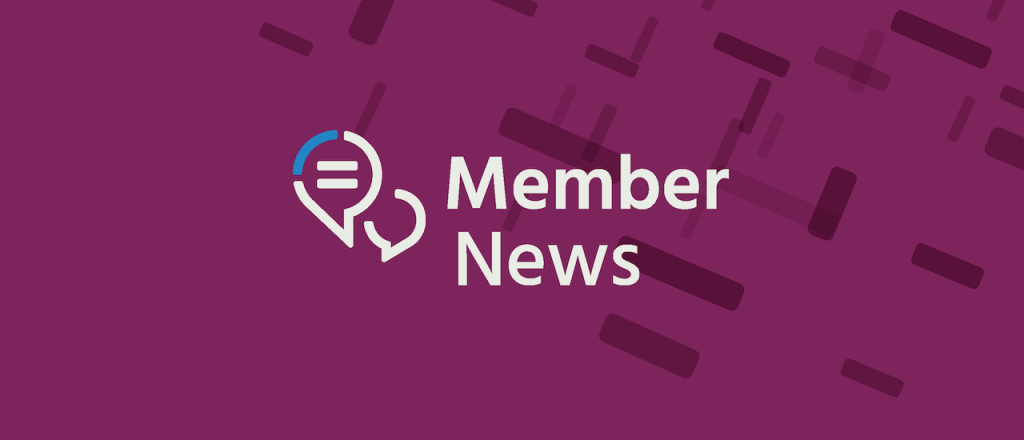
Library access: The Kyrgyzstan Chapter of the Internet Society has started work on version 2.0 of its ilimBox project, an online educational platform for teachers and students. The ilimBox device, now powered by the Raspberry Pi 4, will include new educational videos, audio, and text resources. IlimBox is a digital library for schools and public libraries, containing Wikipedia in Kyrgyz, Russian, and English, the Khan Academy electronic library in English, and thousands of video lessons, audio, and electronic books. All these digital training materials can be used offline, with users not needing immediate access to the Internet, although the library also connects to services through WiFi. As of last November, about 100 schools in Kyrgyzstan had installed ilimBox.
Building a better network: The Ghana Chapter has a post on efforts to improve the wireless network at Ho Technical University, and the author credited training from the Internet Society on community networks in helping him sort out problems with the network there. The campus network “had a lot of issues such rogue DHCP servers and IP address conflicts,” the author noted.
Algorithmic privacy: The Commission for the Protection of Privacy in Canada has given a grant to the Quebec Chapter Continue reading
The Week in Internet News: Microsoft Warns of Cyberattacks on U.S. Election
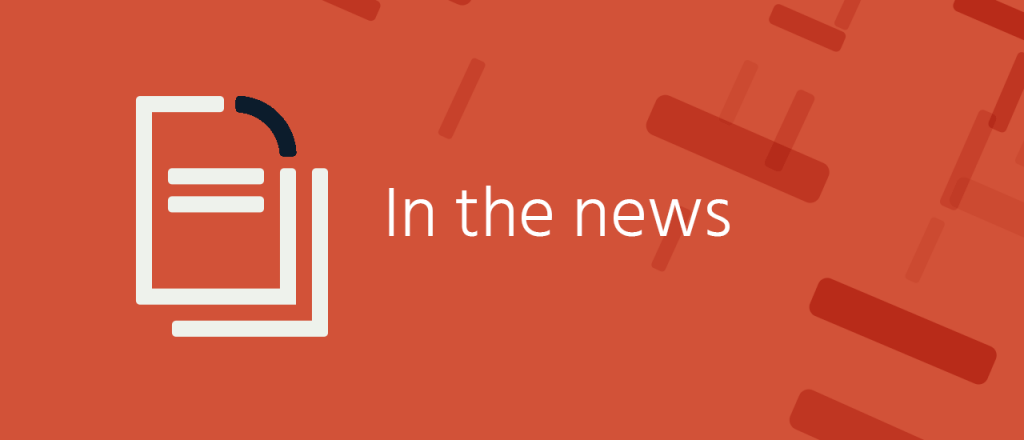
Hackers vs. the election: Microsoft has warned that hackers from Russia, China, and Iran are targeting U.S. election systems, The Hill reports. The tech giant is seeing increasing efforts to hack into the Donald Trump and Joe Biden presidential campaigns. A Russian hacking group called Strontium has targeted more than 200 organizations, political campaigns, and parties over the past year, the company said.
Fighting disinformation: The government of India is calling for greater international cooperation among countries and tech companies to combat disinformation and doctored videos related to the COVID-19 pandemic, India Times reports. “The pandemic has demonstrated the existential dilemma of an information society,” Counsellor Paulomi Tripathi said at the United Nations. “We have been exposed to misinformation and disinformation campaigns which have put lives and livelihoods of millions at risk, divided communities with fake news and doctored videos and undermined the trust in public authorities to tackle the disease.”
Cutting red tape: Nigeria is looking to waive fees for laying fiber optic cables on federal highways as a way to expand Internet access in the country, Quartz Africa reports. Officials hope the waiver will help the country meet targets in its national broadband plan, which aims for Continue reading
How Peering and Infrastructure Development Improved Connectivity in Kenya, Speeding Economic Growth

The country can become a continental digital leader with strengthened Internet Exchange Points (IXPs).
In January this year, Internet users in Kenya reached 22.86 million, a 16% jump from 2019. A leap that was made with no major impact on network quality and speed, and no increase in connectivity costs. Between 2012 and now, the percentage of mobile broadband subscribers increased 100-fold to cover nearly 42% of the country’s population, while the price of data decreased by 50%. This would have been unimaginable a decade ago when around 70% of the country’s traffic went through Europe.
A recent Internet Society report shows IXPs played an important role in this success. The report shines a light on how the combination of peering and Internet infrastructure development improved connectivity in Kenya. It discusses how Kenya was able to localize Internet traffic – from 30% in 2012 to 70% in 2019 – by growing its IXP membership, through attracting local, regional, and international networks, including popular Content Delivery Networks (CDNs). This allowed the local networks to efficiently exchange regional and international traffic without incurring major additional costs.
The report reveals how informed stakeholders and the local technical community in Kenya Continue reading
How Do We Ensure the Internet Grows and Improves? Start with the Internet Impact Assessment Toolkit

The Internet has been revolutionary for human progress. Bit by bit, byte by byte, it has come to underpin modern life. For those of us online today it is hard to imagine (or remember) a world where the Internet was not the fabric of our social lives, education, entertainment, innovation, and culture. But what makes the Internet such a success, and how can we ensure its future? What takes a “network of networks” and makes it the Internet? We’ve launched the Internet Way of Networking’s Internet Impact Assessment Toolkit (IIAT) to to help answer that question.
The current pandemic has showed us both the value and the opportunities the Internet holds. For societies to pivot to a reality where most of our lives became digital overnight is a true testament to the possibilities that are inherent in the Internet.
But while the Internet has proved its resilience under the weight of an online society, it is easy to forget that its fundamental premise is not about cables and computers, but about collaboratively interconnecting independent networks to a greater whole. Because what fundamentally makes up the Internet, and what it could grow to become in the future, is rooted in its Continue reading
This Week in Internet News: India Bans 118 Apps From Chinese Companies
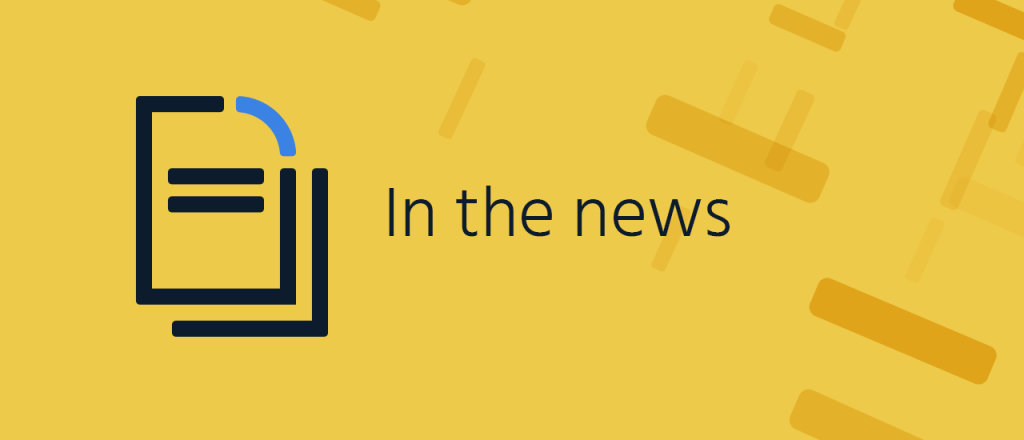
Eyes on you: A U.S. appeals court has ruled that a National Security Agency program that collected call data from millions of U.S. residents was illegal, The Hill reports. The call metadata collection program, exposed by Edward Snowden, was suspended in 2015. The court ruled that the bulk collection of phone records violated laws requiring agencies to seek court orders when collecting investigation-related information from private businesses.
Ban hammer strikes again: The Indian government has banned 118 apps from Chinese companies, including the popular PUBG Mobile shooter game, Indian Express says. The Indian IT ministry says the blocked apps are potential security threats. “In view of the emergent nature of threats [the ministry] has decided to block 118 mobile apps since in view of the information available they are engaged in activities which is prejudicial to sovereignty and integrity of India, defense of India, security of the state and public order,” the ministry said.
Privacy delayed: Apple has delayed a release of anti-tracking software in an iPhone operating system update after app developers raised concerns that the tool would destroy their ability to deliver targeted advertising, the Los Angeles Times reports. The new tool would have automatically blocked Continue reading
Chapter Leaders Worldwide Make the Case for Strong Encryption

What makes a great leader? Earlier this year, 473 Chapter Members participated in the 2020 Chapters Training Program. The Internet Society kicked off the program with a lot of hope and excitement. This was an opportunity to harness the power of us – our global community – to incubate innovative ideas and tomorrow’s Internet leaders.
The program aimed to develop new community leaders to work with their Chapters, create local awareness of the Internet Society’s mission-driven work, and become involved in Action Plan projects, including Encryption.
Each time we share information on the Internet, we assume that only our selected recipients – and no one else – will receive and read it. But how can we be sure? Ursula Wyss of the Switzerland Chapter says, this is “where end-to-end encryption comes in, since it ensures that only you and those people who are intentionally included in the conversation can read the messages that are being exchanged. This is done by scrambling the message in a way that it can only be read by those who have the right encryption key to unscramble it. For everyone else, the messages remain scrambled.”
The Encryption Chapters Training Program was developed Continue reading
Don’t Forget Cybersecurity on Your Back-to-School List

This opinion piece was originally published in Dark Reading.
School systems don’t seem like attractive targets, but they house lots of sensitive data, such as contact information, grades, health records, and more.
Schools are starting to reopen around the country – some physically, some virtually, and some a hybrid of the two. As a result, the remote learning requirement that was thrust upon schools when the pandemic forced closures earlier this year has reemerged. Presumably, lessons learned during the chaotic transition in the spring can be applied to make fall run more smoothly. But one item is critical to consider during this back to school season: Cybersecurity.
Before examining cybersecurity needs in school systems, it’s important to understand what’s at stake. On the surface, school systems don’t appear to be an attractive target, but they contain a significant amount of highly sensitive information, such as contact information, grades, health records, counselor interactions, and possibly parents’ financial records. In light of COVID-19 and increased remote connections, there is now even more data – including health status, contact tracing, and recordings of student participation online – housed in systems and therefore more privacy concerns than ever.
In recent years, schools have also seen Continue reading
The Internet Society Welcomes the Comoros Chapter

We are excited to announce the new Internet Society Comoros Chapter! ISOC Comoros officially launched in July in front of an in-person and online audience at the Retaj Hotel.
Journalists joined several distinguished guests, including:
- Dawit Bekele, Internet Society’s Regional Vice-President for Africa
- Mohamed Said Abdallah Mchangama, President of the Federation of Comorian Consumers (FCC)
- Amina Abdallah, Coordinator of the World Bank’s Phase 4 of the Regional Communications Infrastructure Program for Africa (RCIP-4)
- Hamidou Mhoma, President of the Comorian ICT Association
- Chamsoudine Soudjay, Secretary General of the Comorian ICT Association
- Amroine Mouzaoui, Executive Secretary of the Comorian Movement for Entrepreneurs
- Raymane Ali Matoir, Director of Human Resources of Telma Comores
- Youssouf Abdoulmadjid, Chief Operating Officer of Comor’Lab
- Moussa Abdallah Moumine, Coordinator of the General Inspectorate of National Education
Since the country’s very first connection to the Internet in July 1998, the Internet industry has continued to evolve, along with telecommunications. The country is beginning to benefit from the rise in competition in the ICT sector, and as such the establishment of ISOC Comoros brings an added dimension to the development, promotion, and use of the Internet for the greater good of the entire country.
The Internet is for everyone and Continue reading
The Digital Divide May Be News, But It’s Not New

This opinion piece was originally published in Morning Consult.
Low-income Americans; Black, Hispanic and Native Americans; the elderly; Americans with a high school education or less; and rural Americans are much more likely to be on the wrong side of the digital divide. Ours remains a nation where too many people, often our most vulnerable citizens, are unconnected or under-connected.
The digital divide may have made the news during the COVID-19 pandemic, but it isn’t new.
For much of the past quarter-century, Washington policymakers have ignored the digital divide. In more recent years, some public officials, for political reasons, have identified the digital divide as primarily a rural issue, noting that approximately 5 million rural American households can’t access broadband networks. In reality, the number of rural households that can’t access broadband is dwarfed by the roughly 20 million American households that can’t afford Internet access, and that number almost certainly has increased as a result of the pandemic.
Today, Washington finally seems willing to engage in addressing the digital divide. What we need now are not the patchwork solutions of the past, but a thoughtful, fully funded, comprehensive effort to ensure broadband connectivity for all Americans.
My colleagues and Continue reading
The Week in Internet News: U.S. Moves Closer to Banning Chinese Apps
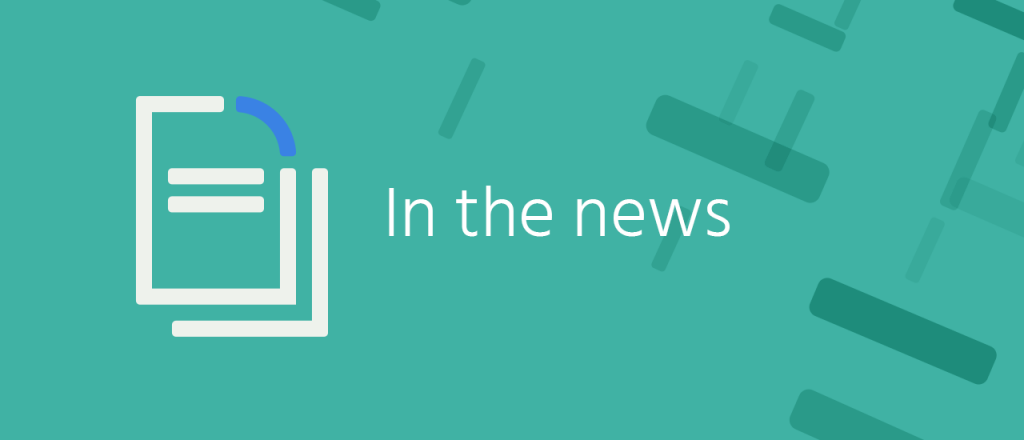
Shopping for video: As U.S. President Donald Trump pushes for a ban of TikTok unless it’s sold by its Chinese owner, Walmart has joined Microsoft in a bid for the short-video sharing app, CNBC reports. TikTok is reportedly nearing an agreement to sell its U.S., Canadian, Australian, and New Zealand operations for $20 billion to $30 billion.
Boycotting an app ban: Another Chinese app that’s been targeted by Trump is WeChat, but the Chinese foreign ministry has suggested that consumers in the country could boycott Apple if the U.S. takes action against WeChat, The Straits Times says. Apple, as a large U.S. company, seems to be a convenient target for Chinese consumers.
An East/West split: As others have warned, an official with the U.K.’s National Cyber Security Centre has suggested that the Internet may split into a Western version and a Chinese-led Eastern version if Trump moves forward with a ban of Chinese apps, the Independent reports. A split could raise concerns about Western technology keeping up with the East, the official says.
Spy vs. hacker: New Zealand’s government has turned to its intelligence agency to thwart a sustained, multi-day cyberattack on the Continue reading
In South Asia an Online Training Course Equips Engineers for the Future

The Internet Society, in partnership with South Asia Network Operators Group (SANOG) recently concluded a five-week, hands-on training course for entry level network engineers and system administrators from South Asia. The online course Introduction to Network Operations, which took place from June 15 to July 19, prepared professionals to take advantage of the new opportunities the Internet is creating. The training provided practical learning about UNIX/Linux, networking, and the Domain Name System (DNS) to over 40 participants from Research Education Networks (RENs), government institutions, network operators, universities, and private institutions. SANOG subject matter experts Thilina Pathirana from Sri Lanka and Gazi Zehadul Kabir from Bangladesh moderated via Moodle, an e-learning platform.
Skills and Knowledge for Digital Transformation
The course aimed to prepare young engineers for the future. The technical skills and hands-on knowledge enable them to build expertise to advance professionally in their chosen field of network and system administration. The course also served as a common platform for South Asia community members to actively interact, exchange knowledge, and learn from one another.
For participants, the course was a great learning experience. “It was the best online course I had yet,” said Afaq Ahmed from Pakistan. For young engineers Shreekar Continue reading
Reflecting on Three Years of Board Service and a Commitment to Quality Improvement
Departing Trustee Glenn McKnight looks back at his three years of service as a member of the Internet Society Board of Trustees.
During the past three years we have seen a tremendous amount of productive work by a functional and focused Internet Society Board of Trustees. This included not only the normal board and committee work, but also the extra efforts associated with the selection of a new CEO, creation of the Internet Society Foundation, and meeting the challenges of the proposed PIR/Ethos transaction.
It’s important to learn from these experiences, but it’s also important to focus on achievements and to reassert the core values of the Internet Society as a force of good in the Internet ecosystem. We see the Internet Society focusing its efforts with purposeful strategic direction lead by CEO Andrew Sullivan and his team. As a departing Trustee, I would like to see the Internet Society explore more opportunities for members to learn from one other, including “Meet the Board” to foster improved communication and a means to help teach the community about the role of the Board of Trustees.
During these three years, my work beyond the normal board work has also involved committee Continue reading
The State of Routing Security at DNS Registries

The Domain Name System (DNS) is an important component of the Internet, but it was not designed with security in mind. In the last 20 years or so, much attention has been directed at improving its inherently insecure aspects.
This includes the deployment of DNS Security Extensions (DNSSEC) that enables cryptographic validation of DNS records, and more recently DNS-over-TLS and DNS-over-HTTPS, which encrypts DNS transactions between hosts and resolvers.
The DNS, though, is also dependent on the global routing system for sending DNS queries from resolvers to servers, and then returning the responses. The integrity of the routing system is, therefore, extremely important for ensuring DNS transactions are delivered efficiently to the correct destination. Yet, at present, few DNS registries are implementing Routing Public Key Infrastructure (RPKI), a public key infrastructure framework designed to secure the Internet’s routing infrastructure, specifically the Border Gateway Protocol (BGP).
A survey of 4,138 zones – that included 1,201 generic top-level domains (gTLDs), 308 country code top-level domains (ccTLDs), 271 reverse map zones, and 1,780 sub-ccTLD zones – showed a total of 6,910 route origins for the name servers that are serving these zones.
Yet, just 22% of these had valid Route Origin Authorisations (ROA), Continue reading
The Week in Internet News: Facebook Bans Conspiracy Accounts
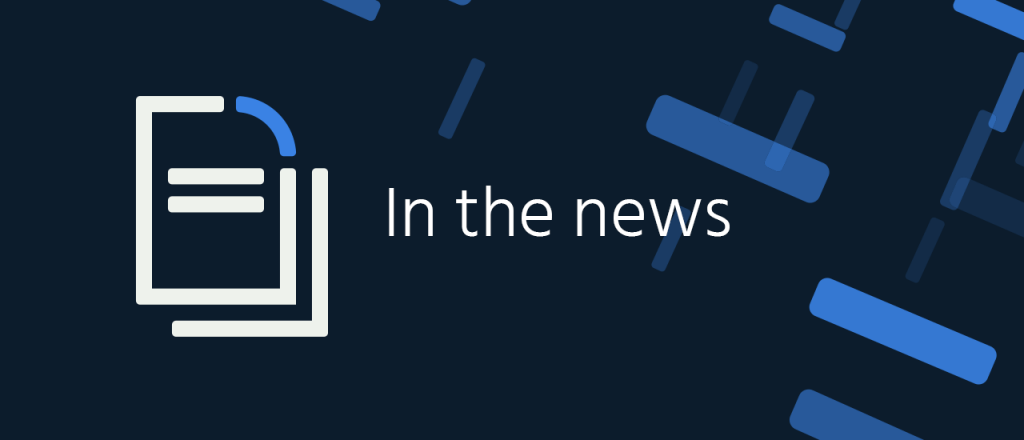
Ban hammer: Facebook has banned banned about 900 pages and groups and 1,500 ads tied to the conspiracy theory QAnon, NBC News reports. QAnon followers believe an anonymous, supposed government insider has warned them about a massive group of satanic cannibals and pedophiles inside the U.S. government. QAnon, militia movements, and violent movements tied to protests will no longer be allowed to buy ads on Facebook, the social media giant said.
That’s really fast: Researchers from University College London have been able to transmit data at 178 terabits per second, The Independent says. That speed is double the speed of any current system being used, and about 20 percent faster than the previous record. With that speed, an Internet user could download the entire Netflix library in just one second.
Cracks in the ‘Net: U.S. President Donald Trump’s campaign against Chinese services TikTok and WeChat could further fracture the Internet, the New York Times reports. “China and the United States once acted like opposites when it came to governing the internet … When President Donald Trump issued executive orders that could lead to a U.S. ban next month on two of the world’s most popular Chinese-made apps, TikTok Continue reading
Mapping Intermediary Liability in Latin America

Thanks to our Chapters in Latin America, we now have a clearer map of the intermediary liability regulatory landscape across the region.
Intermediary liability answers the question, “Should Internet intermediaries (ISPs, web hosting and cloud services, social media platforms, etc.) be liable for content posted or for actions performed by others, such as, for example, their users?”
The success of the Internet depends on intermediary liability regimes that protect Internet providers – by ensuring responsibility for user behavior is on the users themselves, not on the intermediaries upon which they rely (both at the infrastructure and content layers).
The way legal frameworks deal with intermediary liability around the world can impact the Internet way of networking in different ways.
In some countries, intermediary liability legislation is well known: the 1996 US Communications Decency Act (Section 230) and the Brazilian Internet Bill of Rights, for example. But in much of the world it is covered by other more general-purpose regulations, such as tort law, consumer protection law, and child protection law.
We asked our local community to help us map and monitor the current regimes that apply to Internet intermediaries in their countries, so that our work can Continue reading
Working Collaboratively to Improve Emerging Network Time Security Implementations

Accurate and secure time is essential for the security and trustworthiness of the Internet. Many systems that we regularly interact with rely on accurate time to function properly. Accurate time also provides an essential foundation for online security, and many security mechanisms, such as digital certificates used for Transport Layer Security (TLS), depend on accurate timekeeping. The Network Time Protocol (NTP) provides time synchronization for clocks on computer networks.
NTP’s security mechanisms were designed back in an era when most Internet traffic was trusted, and the risk of attack was unlikely. Due to the continued exponential expansion of the Internet, these mechanisms became outdated and needed to be redesigned. The Internet Engineering Task Force (IETF) has been working on a specification for Network Time Security (NTS) for several years now. This specification was approved by the Internet Engineering Steering Group (IESG) in March of this year and is currently in the RFC editing process for the final publication. Over the course of the last couple of years, there have been a series of NTS projects held as part of the IETF Hackathons. These projects have worked to identify mistakes and ambiguities in the specification and to test and improve interoperability Continue reading
Internet Society and the Association for Progressive Communications Enter into a Memorandum of Understanding

The Internet Society and the Association for Progressive Communications (APC) have entered into a Memorandum of Understanding (MoU) to work together on designing and deploying community networks, ensuring local connectivity initiatives achieve long-term sustainability, and other areas of joint interest.
APC is an international network of civil society organizations founded in 1990 dedicated to empowering and supporting people working for peace, human rights, development, and protection of the environment, through the strategic use of information and communication technologies (ICTs).
Both organizations have vast experience in growing the Internet through capacity building, advocating for ICT and infrastructure policies, and engaging local communities. This MoU updates and replaces a previous version. We are excited to further advance the work we’ve been doing together for nearly ten years.
The MoU lays out two key areas of joint interest:
- Developing an enabling environment for communities and local entrepreneurs to solve their own connectivity challenges through design and deployment of community networks, training and capacity building efforts, and highlighting the benefits of connecting the unconnected.
- Ensuring that local connectivity initiatives are able to reach long-term sustainability, support development opportunities, and contribute to meeting Sustainable Development Goals (SDGs) in relation to connectivity.
“There remains a profound Continue reading
Chapterthon 2020: A Time for Internet Society Chapters and SIGs to Shine

The Internet Society 2020 Chapterthon is live and moving fast! We’re so excited to see the applications that have already ticked in.
What is Chapterthon?
Chapterthon is an opportunity for Chapters and Special Interest Groups (SIGs) to engage their members in a worldwide Internet Society competition. Out of dozens of applicants, one Chapterthon winner is selected and awarded prize money. But the real winner is the global community, who benefit from projects that help people connect to the Internet and help them do it securely.
This year is different – one that’s been full of difficulties, but also tenacity, creativity, and uplift. So we’re doing Chapterthon a little differently, too. We’re dedicating it to the people and the medium helping us through.
I Heart the Internet
Internet Society Chapters and SIGs have developed innovative solutions to help their communities through COVID-19. We want to shine a light on their work and make sure it becomes a resource for all. So we’re asking Chapterthon participants to submit tutorials and manuals for their creative and impactful projects. These blueprints will become part of the “I Heart the Internet Knowledge Hub,” a resource for peers and partners around the world to broaden the Continue reading
Knowledge Sharing and Meaningful Conversation at InterCommunity 2020: Securing Global Routing

Recently, five routing security experts shared how they’ve been working to protect the Internet from the most common routing threats – by implementing and promoting the actions called for in Mutually Agreed Norms for Routing Security, or MANRS. They were all participants in InterCommunity, which gives the Internet Society community a way to connect for meaningful conversations about the issues that matter most to the Internet.
Want to join the InterCommunity conversation? Become an Internet Society member today!
This session of InterCommunity, “Securing Global Routing,” set out to increase awareness of MANRS, share good routing practices, and encourage more network operators to take the MANRS actions to make the Internet more secure for us all.
The speakers shared their network operations and capacity building knowledge while more than 200 participants participated live in the informative conversation.
Special thanks to Melchior Aelmans of Juniper Networks who moderated the discussion skillfully!
Here’s what the panelists had to say:
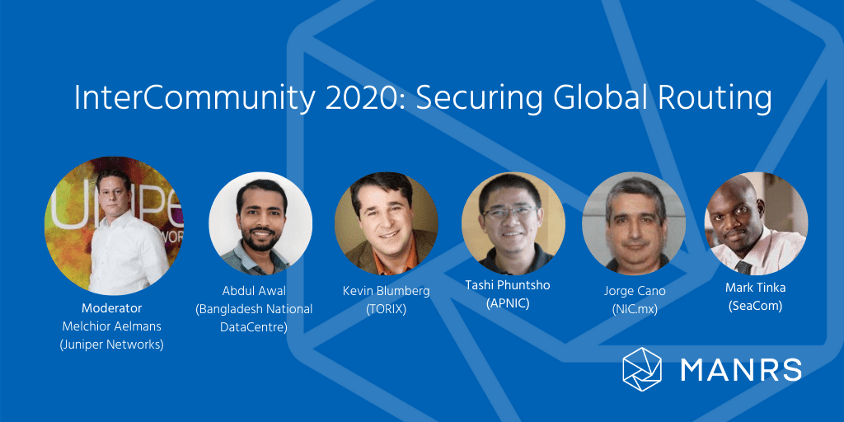
Abdul Awal, Bangladesh National DataCentre
Awal spoke about his goals in building technical capacity around Resource Public Key Infrastructure (RPKI) and raising awareness of MANRS principles in South Asia. He also discussed how we can help networks validate their routing Continue reading
The Week in Internet News: Smart Phones for Online Education
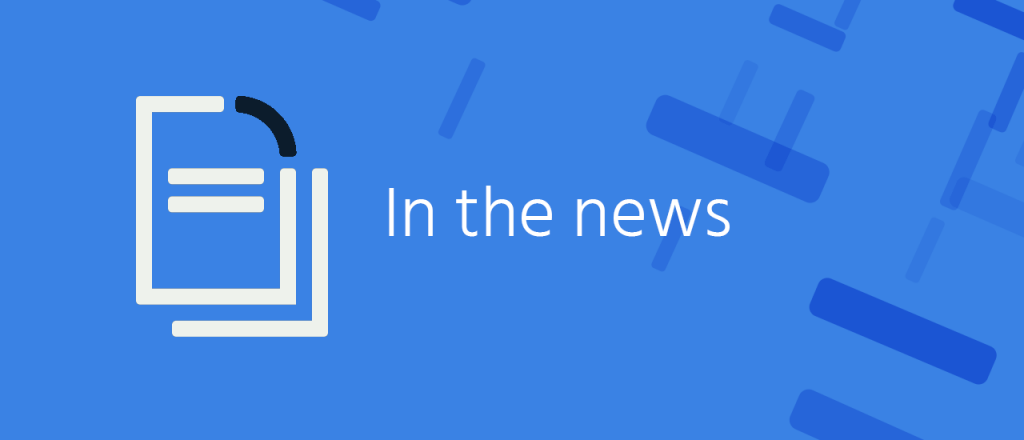
More phones, more access: Chinese smartphone major Xiaomi has announced that its Indian subsidiary will distribute 2,500 phone handsets to support online education of students who are most affected by the COVID-19 pandemic, India Times reports. Teach for India says one smart phone can support the education of up to seven children, if they use the device in shifts.
Tracking the pandemic: The U.K. has launched a limited trial of a COVID-19 tracking app, the BBC reports. The app, which will be available on the Apple and Google online stores, will include an alert system that informs users of the coronavirus risk level close to their home. It also has a QR barcode scanner, allowing users to check in when they visit a venue and be told if others there later tested positive.
Weird pandemic effects: Parent company Facebook is blaming COVID-19 for a lapse in its ability to moderate nudity and other content on Instagram, The Independent writes. Facebook sent content reviewers home in March due to COVID-19, and those employees didn’t have adequate work-from-home systems. Facebook relies “heavily” on human intervention to remove offending content, the company said.
Faking it: One guy decided he’s had too many Continue reading